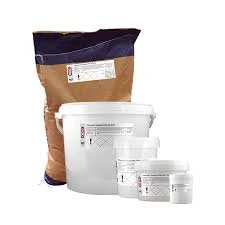
aspartame company
The Aspartame Industry A Sweet Success Story
The world of food and beverages has undergone a significant transformation over the past few decades, and one of the key players in this evolution is aspartame. Aspartame, an artificial sweetener known for its intense sweetness, has become a staple in many low-calorie and sugar-free products. This article explores the aspartame industry, focusing on its development, market dynamics, and future prospects.
Aspartame was discovered in 1965 by chemist James M. Schlatter while he was working on an anti-ulcer drug. Its sweetness is approximately 200 times that of sucrose (table sugar), making it a highly effective sugar substitute for food manufacturers. It is composed of two amino acids, phenylalanine and aspartic acid, and its caloric content is minimal, making it an appealing option for those seeking to reduce calorie intake, manage weight, or control blood sugar levels.
The Aspartame Industry A Sweet Success Story
The aspartame industry has witnessed substantial growth over the years, driven by increasing demand for sugar alternatives. With rising health awareness and the global trend towards healthier eating, more consumers are turning to low-calorie and sugar-free options. This shift has prompted food and beverage companies to innovate and expand their product lines to include aspartame-sweetened alternatives, catering to a market that values health without sacrificing taste.
aspartame company

However, the aspartame industry is not without its challenges. Despite its widespread use, aspartame has faced scrutiny and controversy regarding its safety. Various studies and reports have raised concerns about potential health risks associated with aspartame consumption, leading to calls for increased regulation and labeling requirements. Organizations such as the FDA, the European Food Safety Authority (EFSA), and the World Health Organization (WHO) have conducted extensive research and have consistently affirmed the safety of aspartame when consumed within acceptable daily intake limits. Nevertheless, public perception remains divided, with some consumers opting for natural sweeteners over artificial alternatives.
Looking ahead, the future of the aspartame industry appears optimistic yet complex. As consumer preferences continue to evolve, there is a growing demand for transparency in food production, with many seeking clean-label products. This trend may influence the way aspartame is marketed and perceived. Companies are likely to focus on educating consumers about aspartame's benefits and safety, while also exploring potential reformulations that align with public sentiment towards health and wellness.
Moreover, aspartame's role in the growing market of plant-based and low-calorie products cannot be overstated. With the rise of veganism and plant-based diets, food manufacturers are increasingly seeking effective sweeteners that can enhance flavor without adding excessive calories. Aspartame can play a key role in this arena, offering a viable solution for product developers looking to meet consumer demand.
In conclusion, the aspartame industry has established itself as a crucial segment of the food and beverage market, providing consumers with sweet options that contribute to healthier lifestyles. While challenges regarding safety perceptions and consumer preferences persist, the ongoing innovation and adaptability of the industry suggest a positive trajectory. As we move forward, the aspartame market will likely evolve, continuing to address the needs and concerns of an increasingly health-conscious public.
-
Buy High-Quality Trichloroisocyanuric Acid for Sale | TCCA 90% SupplierNewsAug.30,2025
-
Pure Sodium Dichloroisocyanurate Dihydrate | Powerful DisinfectantNewsAug.29,2025
-
Industrial Chemicals: Quality & Purity for Every IndustryNewsAug.28,2025
-
Nitrile Rubber Honoring Strict Production StandardsNewsAug.22,2025
-
Aspartame Ingredients Honoring Food Safety ValuesNewsAug.22,2025
-
Fertilizer for Balanced Plant NutritionNewsAug.22,2025
-
Cyanide Gold Processing with High Purity AdditivesNewsAug.22,2025
Hebei Tenger Chemical Technology Co., Ltd. focuses on the chemical industry and is committed to the export service of chemical raw materials.
-

view more DiethanolisopropanolamineIn the ever-growing field of chemical solutions, diethanolisopropanolamine (DEIPA) stands out as a versatile and important compound. Due to its unique chemical structure and properties, DEIPA is of interest to various industries including construction, personal care, and agriculture. -

view more TriisopropanolamineTriisopropanolamine (TIPA) alkanol amine substance, is a kind of alcohol amine compound with amino and alcohol hydroxyl, and because of its molecules contains both amino and hydroxyl. -

view more Tetramethyl Thiuram DisulfideTetramethyl thiuram disulfide, also known as TMTD, is a white to light-yellow powder with a distinct sulfur-like odor. It is soluble in organic solvents such as benzene, acetone, and ethyl acetate, making it highly versatile for use in different formulations. TMTD is known for its excellent vulcanization acceleration properties, which makes it a key ingredient in the production of rubber products. Additionally, it acts as an effective fungicide and bactericide, making it valuable in agricultural applications. Its high purity and stability ensure consistent performance, making it a preferred choice for manufacturers across various industries.





